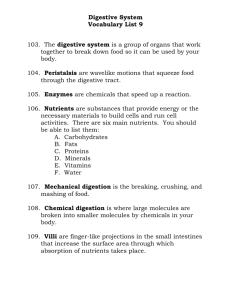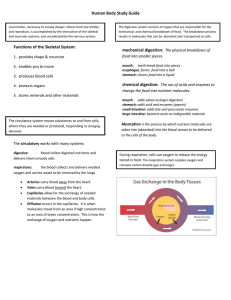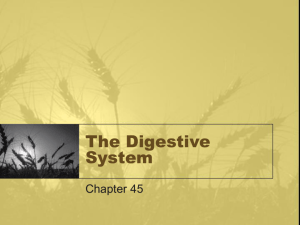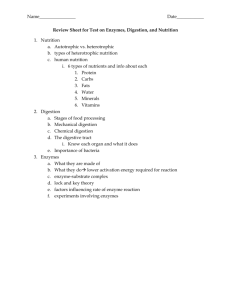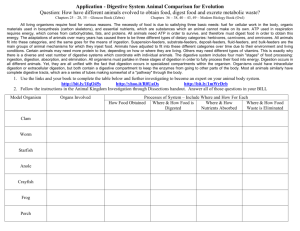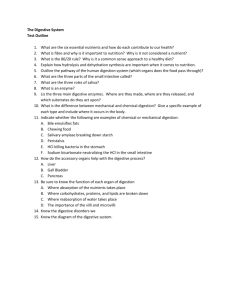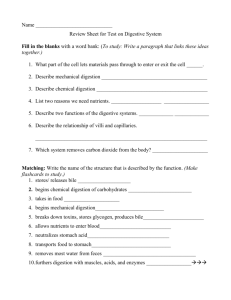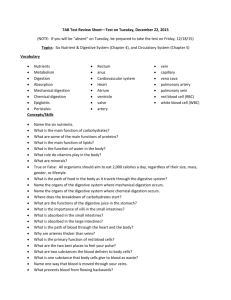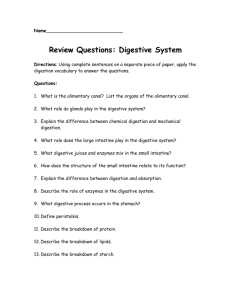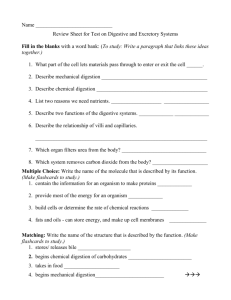Digestive System Vocab
advertisement
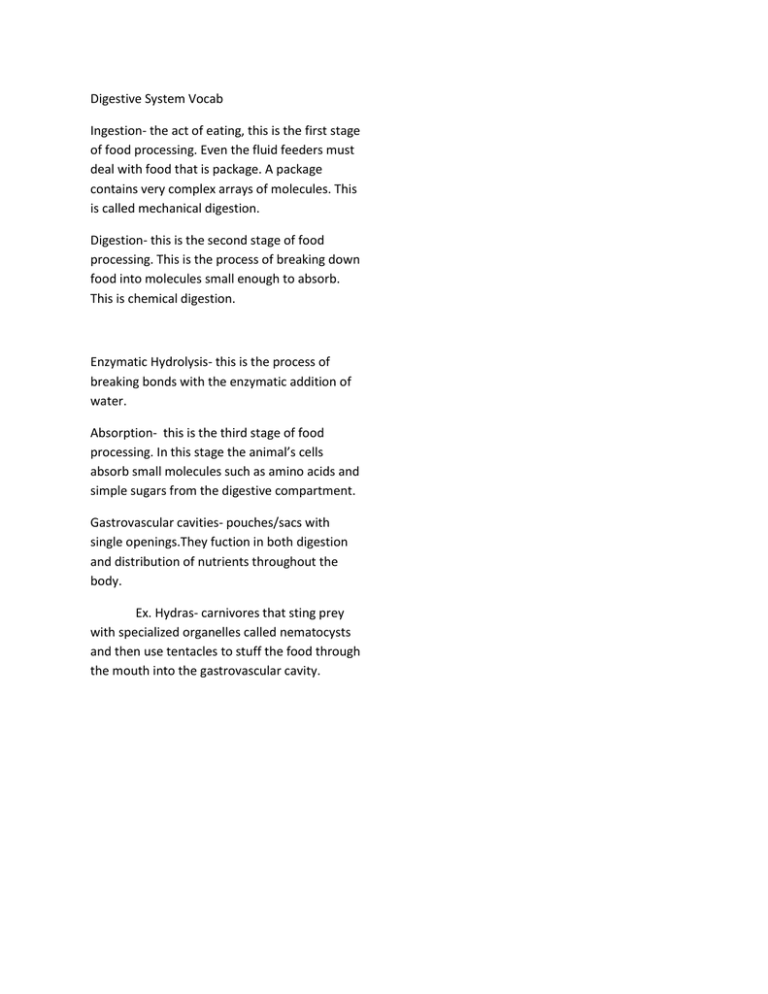
Digestive System Vocab Ingestion- the act of eating, this is the first stage of food processing. Even the fluid feeders must deal with food that is package. A package contains very complex arrays of molecules. This is called mechanical digestion. Digestion- this is the second stage of food processing. This is the process of breaking down food into molecules small enough to absorb. This is chemical digestion. Enzymatic Hydrolysis- this is the process of breaking bonds with the enzymatic addition of water. Absorption- this is the third stage of food processing. In this stage the animal’s cells absorb small molecules such as amino acids and simple sugars from the digestive compartment. Gastrovascular cavities- pouches/sacs with single openings.They fuction in both digestion and distribution of nutrients throughout the body. Ex. Hydras- carnivores that sting prey with specialized organelles called nematocysts and then use tentacles to stuff the food through the mouth into the gastrovascular cavity. Specialized Compartments of Digestion -to avoid the body from digesting its own cells and tissues. Intercellular digestion Food vacuoles are organelles in which hydrolytic enzymes break down food without digesting the cell’s own cytoplasm. How? Newly formed food vacuoles fuse with lysosomes which are organelles containing hydrolytic enzymes and mix the food with the enzymes allowing digestion to occur safely within the compartment that is enclosed by a protective membrane. Who? This process is mostly done by animals (this includes sponges) and heterotrophic protest. Extracellular Digestion It has extracellular cavity for digestion to enable an animal to devour much larger prey than can be digested intracellularly. How? They breakdown food outside the cell Complete digestive tracts/ alimentary canals - tubesextending from the mouth to the anus. Moves food in one direction. Food enters through the mouth/pharynx and then passes through the esophagus and that leads to the crop, gizzard, or stomach (depending what we are talking about) Stomach and crop serve as food storage organs (some digestion might occur there), gizzards however, grind and fragment food. The food enter the intestine, this is where digestive enzymes hydrolyze the food molecules, and nutrients are absorbed across the lining of the tube and into the blood. All undigested wastes are eliminated through the anus. Mammalian digestive system Peristalsis- are rhythmic waves of contraction by smooth muscles in the wall of the canal Function: it pushes the food along the tract. Sphinceters- ring-like valves that close off the tube like drawstrings. Function: regulate the passage of material between chambers of the canal. Accessory glandsSaliva glands: Pancreas: Liver: Gallbladder: INITIATION OF FOOD PROCESSING ORAL CAVITY
